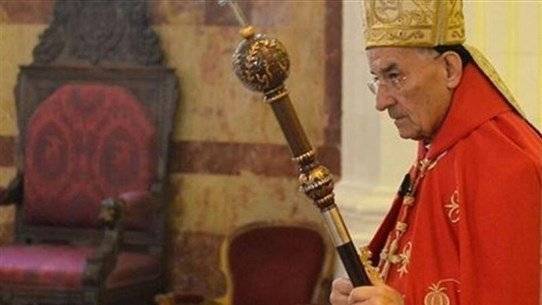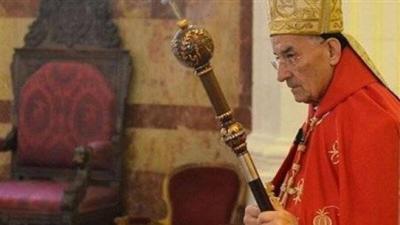Maronite Patriarch Bechara Raï reiterated his criticism of the performance of the Lebanese judiciary, considering that "part of it has become a tool in the hands of the political authority used against justice." At the same time, he spoke about the importance of "conducting successful parliamentary elections as a guarantee for the successful election of a new president who can rise to the challenge of reviving Lebanon."
In his Sunday sermon, Raï stated: "Suspicion is increasing regarding the course of the judiciary in Lebanon, which has become partly an instrument in the hands of the political authority used against justice. We wonder if we are facing a fight against corruption or a fight against political opponents? How can the judiciary not yet resolve the fate of the investigation into the Beirut port explosion? Why hasn’t it yet ruled on the jurisdiction of the investigating judge to continue his investigations in this regard? Why does the judicial inspection refrain from clarifying the files of the judges referred to it? And why doesn’t the General Prosecutor implement the decisions it issues?" He added, "In truth, we have never witnessed such turmoil in the work of the judiciary and this subordination to the political system, and this hesitation among the judicial hierarchy to put an end to this chaotic phenomenon."
Raï spoke about the upcoming parliamentary elections and their importance, urging the people to "vote for the best if they truly want change and reform of the reality." He said: "A successful parliamentary election in its conduct and results is a guarantee for successfully electing a new president of the republic two months before the end of the current term under Article 73 of the constitution, a president who rises to the challenge of reviving Lebanon." At the same time, he stressed "the need for the government to expedite financial and economic reforms, as the speed of the collapse far exceeds the slowness of the reforms." He considered that "the clearest example of the slowness of reforms is the capital control project, which they are trying to pass after the banks' funds have been depleted, while it should have been adopted at the beginning of the financial crisis in 2019. Regardless of the manner in which the regulatory committee is formed to avoid politicization and sectarianism and fragmenting the authority of the Banque du Liban's governorship, the benefit of capital control lies in it being part of an integrated reform project; otherwise, it becomes a sword hanging over the people, preventing them from transferring money abroad and from withdrawing funds domestically. How will they live?"
He affirmed that "unless this project is amended to align with the reality of Lebanon, its free economy, and the needs of the people, it will be a project truly intended for falsehood, as it will isolate Lebanon from the global financial cycle, and the cost will be borne by depositors, investors, importers, exporters, expatriates, and all economic sectors. It is essential for those responsible who are negotiating with the International Monetary Fund to explain the specific situation of Lebanon and the extent to which the lives of Lebanese residents are connected to remittances from expatriates and the extent of the association of Lebanese students abroad with remittances from their families in Lebanon."




